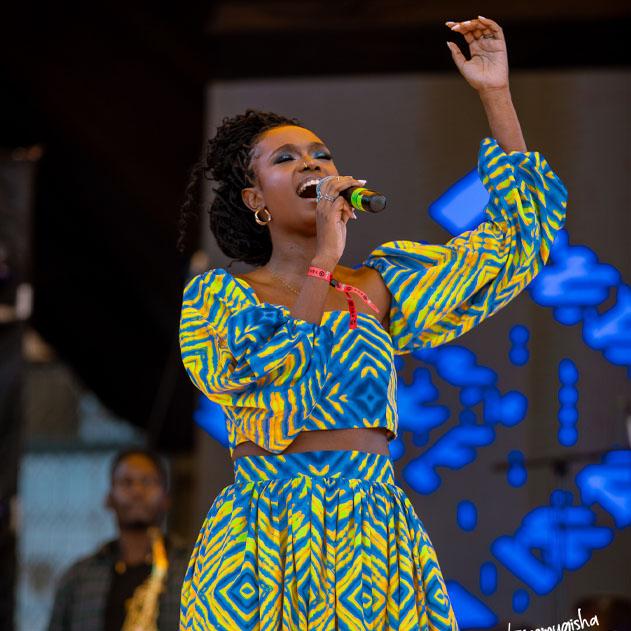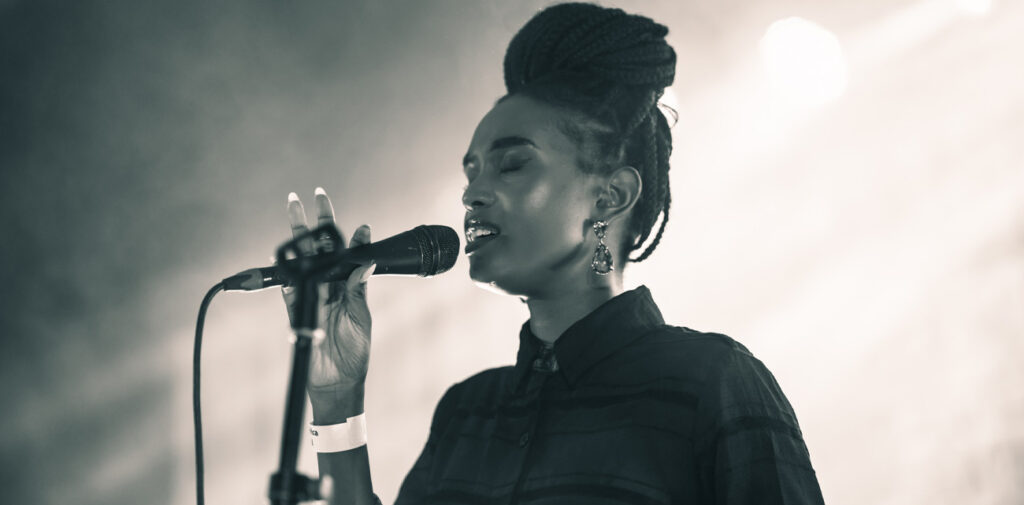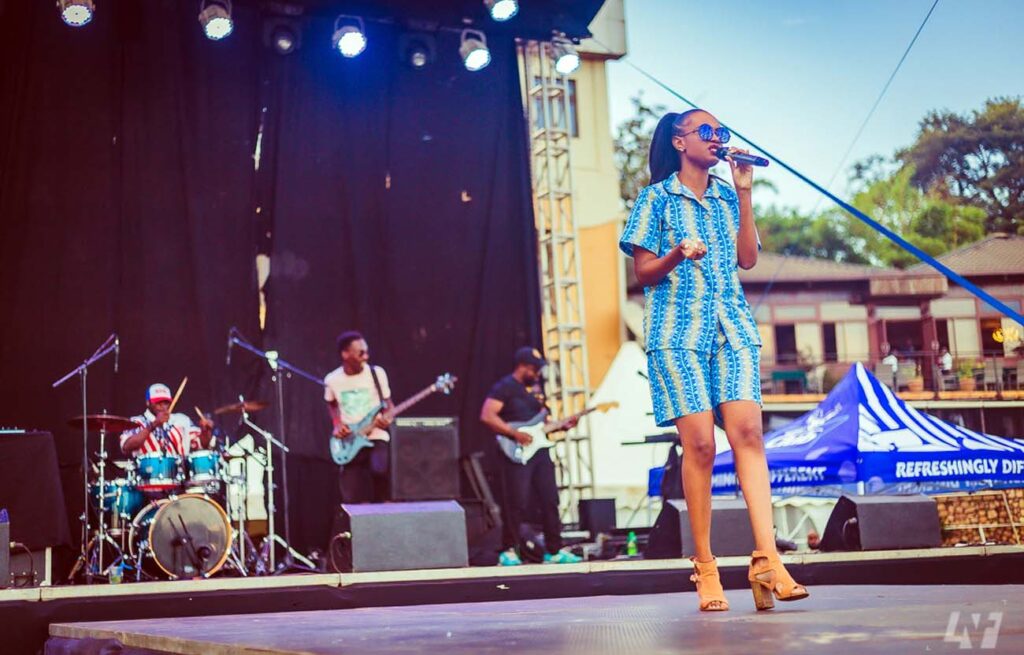What you need to know:
New age artistes: Kohen Jaycee, Ceee, Akeine, Kamanzi, Izabel.Ug are some of the names we are beginning to continuaously see on flyers. These are singers who have chosen a sound that can cross borders and are setting themselves up for bigger things, writes Andrew Kaggwa
If you have followed trends through 2023, there are chances you have heard music from artistes such as Kohen Jaycee, Ceee, Niwe Akeine, Kamanzi, Izabel.Ug, Elijah Kitaka or Joshua Baraka.
These are artistes who showed up and somehow made their presence felt. Unlike the known mainstream artistes whose major aim is to get their music on the next local radio station or local club, these aim for other platforms.
Not in a million times will you catch them backstage at Gravity or Fik Fameica’s concert begging for the opportunity to perform; in fact, you will hardly find them in the audience.
Maybe it is an assumption. For many, these are artistes whose audience is already waiting; they will perform at Blankets and Wine, Shorts Na Lesu, different brunches and a batch of events organised by Malembe Lifestyle.
But there are also a series of events that curate such artistes, such as Jameson and Friends, Boda Boda Stage and Xpressions UG, among others.
They could be artistes whom most people did not know a few years ago, although for the short time they have been performing, they have an adoring audience.
When Elijah Kitaka played at Vibez Nzuri’s end of year extravaganza at Gazebo in Najjera, you clearly saw something different had happened, the wild cheer that accompanied the performance. It was the same case when he was on the ShoNaLe stage, the love he gets from these audience is unbelievable.
This is the same for Kohen Jaycee, Niwe Akeine, Ceee or Kamanzi at such events, the audiences there know their music and lyrics by heart. The fanbase adores them that you cannot help but wonder where they learnt about the music, considering it is not played on mainstream TVs and radio.
These artistes have managed to cultivate a dedicated following through alternative means such as social media and underground music platforms. Their unique sound and style resonate with a niche audience that actively seeks out new and undiscovered talent. The fanbase’s passion and knowledge of their music is a testament to the power of word-of-mouth and the impact of online communities in today’s music industry.
But is that enough? Is it all it takes? Are the artistes the answer to Nigerian music’s dominance?
Too many questions, huh?
Are they all that?
There are many factors that make Uganda’s new school tick; their appeal, personality and of course, their choice of music topics.
Joshua Caleb, a presenter on Kiss FM says there is a personal touch they bring to the music.
“Artistes have been an idea; we seem to see them from a distance. These artistes speak to us in a different way. We understand the things they sing about,” he says.
But it is not all about their choice of topics, such as the wrong one loving you on Kohen Jaycee’s Siganye or the issue of selflove on Joshua Baraka’s Tewekweka, many people have noted that these artistes are a breath of fresh air.
For instance, for years Ugandans have revered Bebe Cool, Bobi Wine and Chameleone but much as the three are amazing artistes, it is also true that they are not very different. Most of their music is in between dancehall and soukous. Things have not changed for a long time, from Bebe Cool to Ziza Bafana or Zex Bilangilangi, a good number of generations of artistes over the years have been remarkably doing the same thing – a hybrid of dancehall, zouk, and rumba, locally called kidandali.
“The new crop of artistes is different; you do not sound like each other. Each offers a different thing and they excel at it,” he says.
Joshua Baraka is one of such artistes who has managed to break through with the mainstream audience; his Nana and Delilah have been well received, with the latter later becoming the fastest local song to hit a million views – in less than a month.
“Joshua Baraka has been flying high with his singles and collaborations,” Caleb says, adding that the hardwork that most of these artistes put in pays.
“It does work, the market is wider. Most of the times, Ugandan artistes are mostly understood by fellow Ugandans. Music has to be localised in a certain way. But with this sound, your music will travel and more people will listen to you. It sets you up for bigger markets,” he says
Taking it beyond borders
Since Joshua Baraka emerged with Nana, he has been able to collaborate with former Sauti Sol frontman Bien, Nigeria’s Joeboy, Ghana’s King Promise as well as collaborate with other Nigerian artistes such as Tiphe, Magixx and has also performed alongside English rapper Ms Banks.
That is on top of performing alongside Ric Hassani and Blaqbones during their shows in Kampala. His producer Axon has since started making music with Nigerian artistes as well.
Joshua Baraka has such an East African presence that many presenters in Nairobi such as G-Money on Trace FM or Sheila Kwamboka on Kiss FM refer to the Ugandan as ‘my friend’ or ‘my boy Baraka’.
He believes artistes such as him who have chosen a sound that can cross borders are setting themselves up for bigger things and that is regardless of the language.
In fact, Joshua Baraka argues that whether they sing in English or other languages that are not Luganda, the Ugandan market still understands them.
“It is almost an insult for people to think that the local audience does not listen to music in English. Because let us face it, Ugandans listen to Burna Boy and Chris Brown, all the people listening to this music are not uptown,” he says.
Of course he echoes what singer Azawi told sQoop in an interview last year, that the local music industry and the audience were moving in two different directions noting that the audience was using the internet more and thus leaving the industry behind.
“I have been to Luweero, Arua, and Lira, and I have seen locals gravitating towards Amapiano and Nigerian sounds; it is a sign that things have changed. This generation is educated, and educated people think differently. The people we make music for now are not the same people we made music for five years ago; our audience is on the internet, yet our artistes are not even online; it is bad,” she said in the interview.
Answer to Nigerians?
The success of Joshua Baraka, Caleb says, shows Ugandans and other artistes what may be possible if they take time to grow. He says Ugandans loved Ugandan artistes and supported them; however, at one point, they became comfortable and stunted. The audience, in search of something fresh and better, ended up with Nigerians.
“As an industry, we grew, concert production became better and finally more Ugandans could show up for concerts, but somehow, they felt like the music did not grow with all the other things,” he says.
“When you look at it, Nigerian music has grown and ours stayed somewhere. But with this crop of new artistes, you can play their song alongside Burna Boy, Davido and it will not sound like a downgrade; they are almost an answer to Nigerians,” Caleb says.
Of course very many people share the sentiment. Singer Alex Bagonza, alias A Pass, released his new album yesterday. The album only features collaborations with female artistes such as Ceee, Akeine and Likkle Bangi among others. He says these artistes have something special they are bringing to the industry.
In the same manner, early this year, Bagonza praised Joshua Baraka for making Uganda proud in 2023 with Nana and wished him the best and more this year. In the tweet, he called upon Ugandans to support artistes whose sound can take local music beyond the borders.
“Last year, Joshua Baraka made Uganda so proud with his sound and freshness. I pray for the same this year. No pressure; just do what you love, champ, and for the fans, please support the talented artistes who have that international sound because that is how we shall move forward musically. We keep complaining about how Uganda is not going international, but we do not give support to the young ones who have the international sauce. We frustrate them until they quit. Give these guys strength and energy because the locally appealing artistes already have the crowd and support; we need the crowd and support for the urban ones.”
A Pass has been a permanent fixture in the lives of many of these artistes – he has been a bridge for many of them, collaborating and making music with them.
Are they there yet?
Caleb believes that these artistes are still a work in progress and need the support equal to or even more than that given to dancehall artistes. He says as Jose Chameleone and group, they have a chance of growing with their audience, although they need to work and constantly re-invent.
“If they get to a certain point and get comfortable, they will not grow and the market will find people to give them what these people will not be providing,” he says.
He adds that there is more work to be done, but the beauty is that there is an audience plugging into them. For instance, he says the support Joshua Baraka and Kenneth Mugabi have received is proof Ugandans are willing to accommodate something different.
“That is where our role as media comes in; we need to teach the audience about different music and sounds,” he says.
For the artistes though, more promotion and marketing are needed. For example, Joshua Baraka heavily used the internet to push his music.



